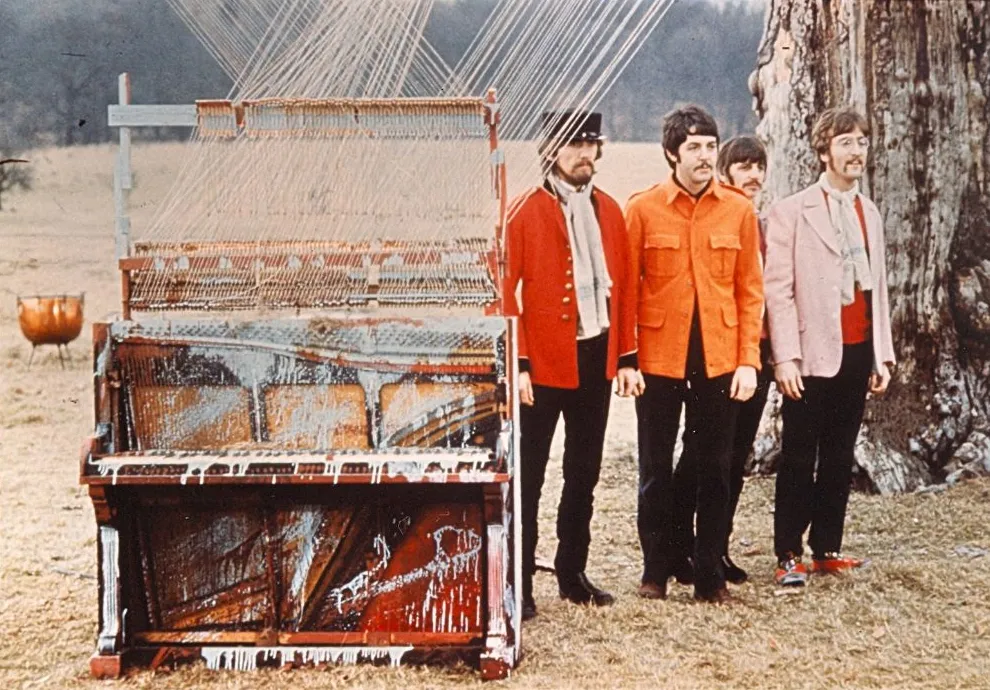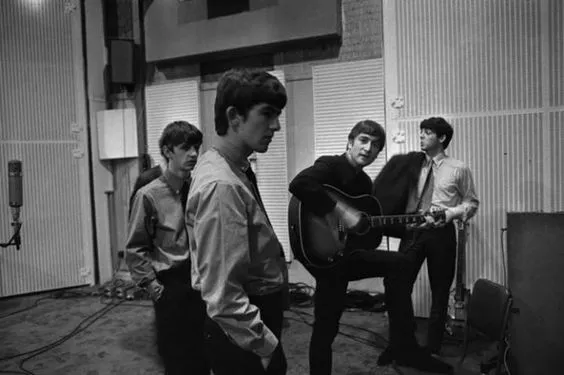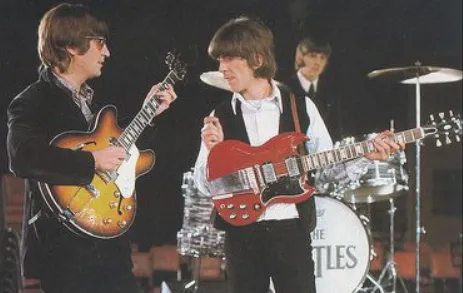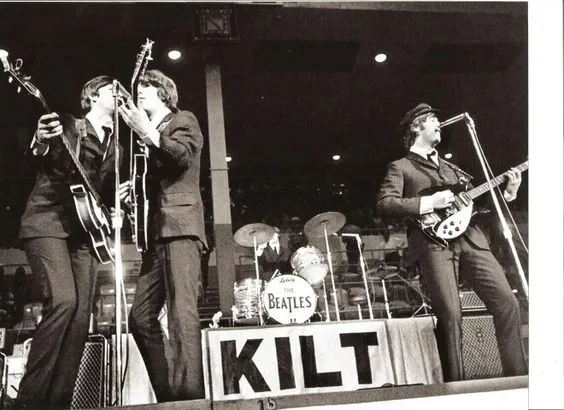About the song
(Watch the video below)
"Taxman" stands as more than just another track on The Beatles' seminal album "Revolver" – it's a defiant anthem, a reflection of the times, and a showcase of the band's evolving sound and social consciousness. Penned primarily by George Harrison, "Taxman" not only marked a significant departure from The Beatles' earlier musical style but also served as a commentary on the era's political and economic climate.
Released in 1966, during a period of widespread social change and upheaval, "Taxman" captured the frustration and disillusionment felt by many British taxpayers, including The Beatles themselves. In the mid-1960s, the top tax rate in the United Kingdom reached an astonishing 95%, prompting outrage among high-earning individuals, including the members of the Fab Four. Harrison, in particular, found himself increasingly disillusioned with the British tax system and the government's heavy-handed approach to taxation.
In "Taxman," Harrison channels his frustration into a blistering critique of government bureaucracy and excessive taxation. The song's opening lines, "Let me tell you how it will be / There's one for you, nineteen for me," immediately set the tone for what follows – a scathing indictment of the taxman's insatiable greed and the burdensome tax rates imposed on hardworking citizens.

Musically, "Taxman" showcases The Beatles' experimentation with new sounds and recording techniques. The song's opening riff, played by Harrison on his iconic Gretsch guitar, is instantly recognizable and sets the stage for the track's edgy, rock-driven sound. Paul McCartney's driving bassline and Ringo Starr's crisp drumming provide a solid foundation for the song's energetic groove, while John Lennon's rhythm guitar adds depth and texture to the mix.
One of the most striking elements of "Taxman" is its use of unconventional song structure and arrangement. The song eschews traditional verse-chorus-verse format in favor of a more dynamic and unpredictable arrangement, with Harrison's biting lyrics serving as the song's focal point. His vocal delivery is both impassioned and defiant, conveying a sense of righteous indignation that resonates with listeners.
In addition to its lyrical content and musical innovation, "Taxman" also features one of the most memorable guitar solos in rock history. Harrison's blistering solo, played on his Gibson SG, is a tour de force of technical skill and emotional intensity, showcasing his prowess as a guitarist and cementing his reputation as one of rock's greatest axemen.
Beyond its immediate impact as a standalone track, "Taxman" played a crucial role in shaping the overall sound and direction of "Revolver," widely regarded as one of The Beatles' greatest achievements. The album marked a departure from the band's earlier pop-oriented sound, embracing a more experimental and eclectic approach to songwriting and production. "Taxman" served as the perfect opening salvo for "Revolver," setting the stage for the sonic exploration and artistic innovation that would define the album.

"Taxman" also signaled a shift in The Beatles' approach to songwriting, with each member of the band contributing their own unique perspective and musical ideas to the creative process. While Lennon and McCartney had long been the primary songwriters in the group, Harrison's growing confidence and artistic vision were evident in his contributions to "Revolver," including "Taxman" and other standout tracks like "Love You To" and "I Want to Tell You."
Despite its initial release over half a century ago, "Taxman" remains as relevant and resonant as ever, its themes of government overreach and individual liberty striking a chord with listeners across generations. The song's biting social commentary and infectious energy continue to captivate audiences, cementing its status as one of The Beatles' most enduring and influential tracks.
In conclusion, "Taxman" stands as a powerful testament to The Beatles' artistic vision and social consciousness. Through its incisive lyrics, innovative musicality, and timeless appeal, the song remains a landmark moment in the band's storied career, encapsulating the spirit of rebellion and creative exploration that defined the 1960s. As the world continues to grapple with issues of inequality and injustice, "Taxman" serves as a timely reminder of the power of music to inspire change and challenge the status quo.



